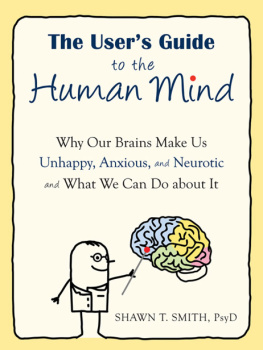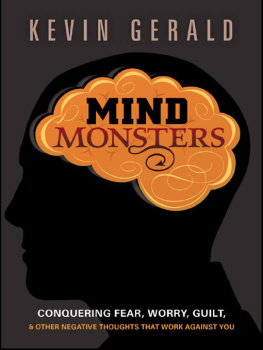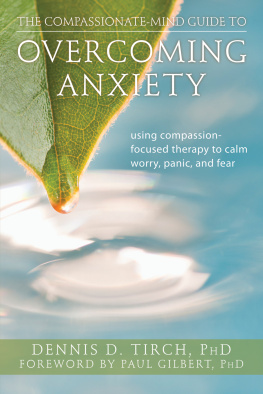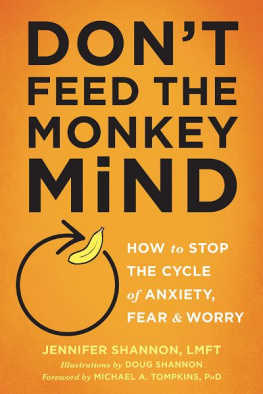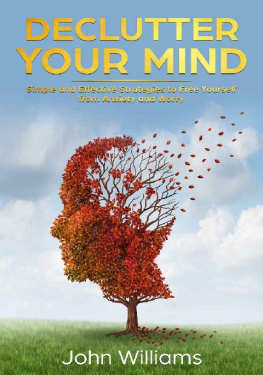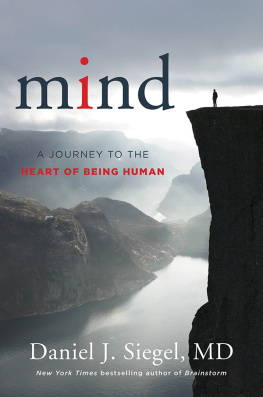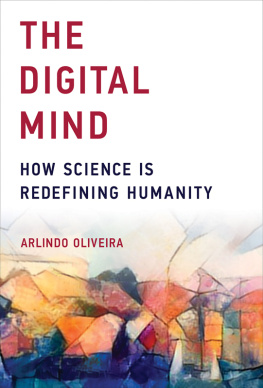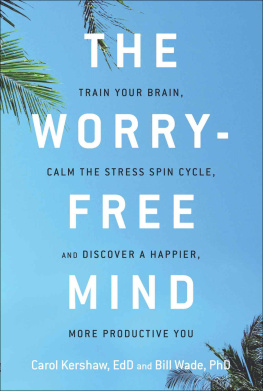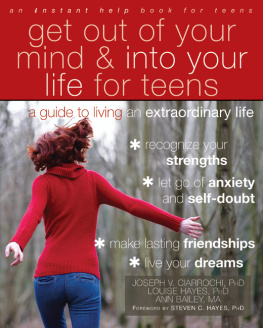Youve been using the tool between your ears your whole life, but how often have you considered what it is and what it is good for? No users manual came with it, but this book helps make up for that shipping mistake. You would not use your dishwasher without cracking the manual. Come on. Time to take a look!
Steven C. Hayes, PhD, Foundation Professor of Psychology at the University of Nevada and author of Get Out of Your Mind and Into Your Life

Publishers Note
This publication is designed to provide accurate and authoritative information in regard to the subject matter covered. It is sold with the understanding that the publisher is not engaged in rendering psychological, financial, legal, or other professional services. If expert assistance or counseling is needed, the services of a competent professional should be sought.
Distributed in Canada by Raincoast Books
Copyright 2011 by Shawn T. Smith
New Harbinger Publications, Inc.
5674 Shattuck Avenue
Oakland, CA 94609
www.newharbinger.com
Cover design by Amy Shoup; Text design by Tracy Marie Carlson; Acquired by Melissa Kirk; Edited by Jean Blomquist
All Rights Reserved
Epub ISBN: 9781608826049
The Library of Congress has Cataloged the Print Edition as:
Smith, Shawn T., 1967
The users guide to the human mind : why our brains make us unhappy, anxious, and neurotic and what we can do about it / Shawn T. Smith.
p. cm.
Includes bibliographical references.
ISBN 978-1-60882-052-8 (pbk.) -- ISBN 978-1-60882-053-5 (pdf e-book)
1. Psychology. 2. Emotions. 3. Reason. 4. Brain. I. Title.
BF121.S59 2011
152.4--dc23
2011027865
For Tracy and Jordan
Contents
* What This Book Is About
* Lukes Struggle * My Mind, My Bodyguard * The Argument Trap * The Paradox of Thought Suppression
* What Is the Mind? * Why the Mind Worries * How the Mind Speaks * Anxiety and Depression: Ancient Tools for Modern Times * The Mind Is Always Rational, from a Certain Point of View
* From the Minds Point of View, Survival Matters Most * Thoughts Are Not Facts * Observing Your Thoughts *Observing Your Emotions
* How Penelope Lost Track of Her Values * The Past Is Not the Problem * The Minds False Dilemmas
* What the Mind Fears and How It Responds * The Survival Value of Biased Recall * How the Mind Makes Rules to Keep Us Safe
* Training the Mind to Tolerate the Pursuit of Values * The Higher Mind * Finding Your Values * Control Your Life, Not Your Mind * The Trap of Waiting for Thoughts and Feelings to Change * Take Your Mind with You on the Road to Valued Living
* What Meg Doesnt Know About Andy * Why Our Minds Rely on History
* Trump Cards * Responding to Trump Cards * Double Standards * Staying Observant and Maintaining Distance
* It Isnt PessimismIts Error Management * Pessimism: The Ancient Cure for Modern Times * Living with a Pessimistic Mind
* How the Mind Competes with Itself * Breaking the Quick-Fix Habit * Managing the Drive for Quick Fixes
* Mallorys Mood * Dont Trust Every Mood You Meet * My Mind Might Be Wrong * Opposite Action: Moving Toward Values * To Medicate or Not to Medicate?
* How Healthy Habits Insulate Us from the Mind * One Final Exercise: Increasing Psychological Flexibility for a Lifetime
Acknowledgments
There would be very few books in print if their authors had to go it alone. This book owes its existence to many people who have stood in my corner. My everlasting gratitude goes to Melissa Kirk at New Harbinger for her faith in me and for shaping this book, and to Jess Beebe, Nicola Skidmore, Kayla Sussel, and Jean Blomquist for their patient and wise editing. To my colleagues who suffered through the early drafts and offered invaluable feedback, I am deeply grateful: Sarah Burgamy, PsyD, Bennett Leslie, PsyD, Jonathan Lipson, PhD, and Christa Smith, PsyD. I also want to thank my many instructors, supervisors, and clients who continue to show me the way. Many thanks to my lovely niece, Valerie Wickwar-Svoboda, for a clear perspective from a master of the English language, and to my friend Penny Oliver for the kind and detailed attention to this manuscript. You both helped me convey what I actually meant to say. Finally, I could not have written this, or accomplished much of anything else, without my family. Thank you Mom, Bob, and Bev for handling some of my responsibilities during this writing, to Jordan for being the bright and shiny center of our little world, and to my wife, Tracy, for your love and endless patience.
Introduction
Im thinking of a vivid memory from childhood. It is one of those flashbulb moments that the mind occasionally casts into our awareness. It happened at closing time at my familys truck stop as I was washing glasses behind the bar. (I had an unusual childhood.) Thats when I noticed Chuck, one of our regular customers.
Chuck was one of my favorites. Straw cowboy hat, goose-down vest, and a perpetual grin. He was gregarious, witty, good-natured, and an always-welcomed fixture at the bar.
Chuck also seemed troubled in a way that eluded my ten-year-old mind. He drank heavily, and despite his affability, people knew little about him. He was never at a loss for good conversation, but he rarely discussed himself. He managed to keep the spotlight on others. Someone once joked that he must have been a spy because he was a man of such mystery.
In hindsight, he had the bearing of a man who hoped to avoid an encounter with his own regrets, and so he dodged and weaved using humor, camaraderie, and alcohol. Had you asked me at the time, I might have said that he seemed like a happy guy, but he was probably lonely.
On the evening that I recall, he sat in contrast to his usual manner. He was alone, relaxed, and peaceful. His constant, mischievous grin was replaced by the slightest and most genuine smile. Before him sat a nearly empty glass of beer. It was the last in a chain of empty glasses, and I couldnt decide whether to disturb him so that I could wash it.
Many years have passed since that evening, though Ive never forgotten Chuck. I have, however, graduated from junior barkeeps assistant to clinical psychologist. Now I wonder what caused Chuck to drink so much and to avoid revealing who he really was. I wonder what was going through his mind and what his mind was telling him about himself and his life.
Ill never know what Chucks mind was telling him, but I do know what my mind tells meand I dont always like it. And if youre anything like me, you may wonder how you can control your mind. If its like mine, it never shuts up!
In some ways, a mind is easy to control. I can choose to think about what I want, when I want. Right now, Im choosing to think about donuts, because I like donuts.
In other ways, minds are downright willful and insolent. They think their own thoughts, without permission, and usually with impeccably bad timing. Take my last attempt at public speaking. As I stood in front of a crowd, ready to begin my presentation, my mind gave me these thoughts:
Youre going to forget what to say. You need a haircut. Is your fly open?
I didnt want those thoughts. They werent helpful. Thanks a lot, mind.
Sometimes minds go well beyond these jabs at self-confidence. They can convince us that we are damaged and unlovable, or that we cannot do something within our power, or that the world is more dangerous than it really is. They can saddle us with such powerful anxiety and depression that we believe we cannot do as we wish. Our minds can be that persuasive.

